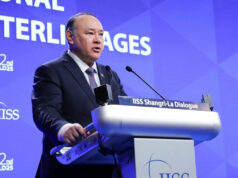Marcos gov’t to launch campaign versus fake news

PRESIDENT Ferdinand R. Marcos, Jr.’s administration will implement a digital media literacy campaign this year to help Filipinos detect fake news, according to Malacañang.
The government aims to “equip the most vulnerable communities with knowledge and tools ‘to be discerning of the truth’,” the Presidential Communications Office (PCO) said in a statement.
According to the PCO, a nationwide study will be conducted this month to identify the communities where media literacy is most needed, determine the social media platforms “through which these communities are most susceptible to fake news,” and identify the content and topics “on which these misinformation and disinformation focus.”
The study also aims to identify the profiles of fake news peddlers, understand the influences that open vulnerable communities to deceptions, and know the practices and habits of the target communities that create the opportunities for exposure to disinformation and misinformation.
“When we have gathered the results of this study, expectedly by the middle of this year, we will be implementing a nationwide media literacy campaign that will focus on the areas identified,” PCO Undersecretary Cherbett Karen L. Maralit said.
The PCO will be closing the campaign by the end of 2023 with a Media Literacy Summit, where speakers from various organizations such as Meta Platforms, Inc., Google, Inc., and the Philippine Commission on Women, among others, will be invited “in the hope that they will share equal commitment to this cause.”
The agency said legislation on media literacy has also been introduced in both houses of Congress.
“The measures seek to institutionalize the effort of our Department of Education to include Media and Information Literacy (MIL) as a core subject in the current curriculum of basic and secondary education,” Ms. Maralit said.
She said the challenges in integrating MIL in the basic education curriculum include the misconception about the course as an educational technology-related subject, the lack of training for MIL teachers, and the need to consider MIL as a core subject by tertiary education institutions.
“The PCO shall work with the public [education] sector to help address these challenges,” she said. — Kyle Aristophere T. Atienza



